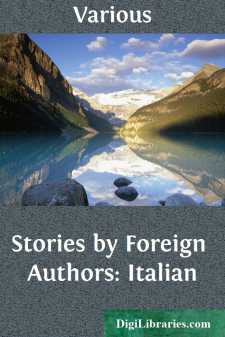Categories
- Antiques & Collectibles 13
- Architecture 36
- Art 48
- Bibles 22
- Biography & Autobiography 813
- Body, Mind & Spirit 142
- Business & Economics 28
- Children's Books 17
- Children's Fiction 14
- Computers 4
- Cooking 94
- Crafts & Hobbies 4
- Drama 346
- Education 46
- Family & Relationships 57
- Fiction 11829
- Games 19
- Gardening 17
- Health & Fitness 34
- History 1377
- House & Home 1
- Humor 147
- Juvenile Fiction 1873
- Juvenile Nonfiction 202
- Language Arts & Disciplines 88
- Law 16
- Literary Collections 686
- Literary Criticism 179
- Mathematics 13
- Medical 41
- Music 40
- Nature 179
- Non-Classifiable 1768
- Performing Arts 7
- Periodicals 1453
- Philosophy 64
- Photography 2
- Poetry 896
- Political Science 203
- Psychology 42
- Reference 154
- Religion 513
- Science 126
- Self-Help 84
- Social Science 81
- Sports & Recreation 34
- Study Aids 3
- Technology & Engineering 59
- Transportation 23
- Travel 463
- True Crime 29
Sort by:
by:
Various
FOLK-SONG BY F. B. GUMMERE s in the case of ballads, or narrative songs, it was important to sunder not only the popular from the artistic, but also the ballad of the people from the ballad for the people; precisely so in the article of communal lyric one must distinguish songs of the folk—songs made by the folk—from those verses of the street or the music hall which are often caught up and sung by...
more...
by:
Various
ADELBERT VON CHAMISSO (1781-1838) ouis Charles Adelaide de Chamisso, known as Adelbert von Chamisso, the youngest son of Count Louis Marie de Chamisso, was born in the paternal castle of Boncourt, in Champagne, January 30th, 1781. Driven into exile by the Revolution, the family of loyalists sought refuge in the Low Countries and afterward in Germany, settling in Berlin in 1797. In later years the other...
more...
by:
Various
TORU DUTT (1856-1877) n 1874 there appeared in the Bengal Magazine an essay upon Leconte de Lisle, which showed not only an unusual knowledge of French literature, but also decided literary qualities. The essayist was Toru Dutt, a Hindu girl of eighteen, daughter of Govin Chunder Dutt, for many years a justice of the peace at Calcutta. The family belonged to the high-caste cultivated Hindus, and...
more...
by:
Various
DENIS DIDEROT (1713-1784) mong the French Encyclopædists of the eighteenth century Denis Diderot holds the place of leader. There were intellects of broader scope and of much surer balance in that famous group, but none of such versatility, brilliancy, and outbursting force. To his associates he was a marvel and an inspiration.Denis DiderotHe was born in October 1713, in Langres, Haute-Marne, France;...
more...
by:
Various
INTRODUCTION These pictures of Colonial life and adventure make up a panorama which extends from Powhatan and John Smith, in the days of the Jamestown colony, to Pontiacâs attempt upon Detroit in the period which preceded the Revolution. Here one may read stories which are strange indeed, of King Philipâs War in New England, of a Dutch heroâs exploit on the shores of Long Island Sound,...
more...
by:
Various
SICILIAN SCENERY AND ANTIQUITIES. BY THOMAS COLE. A few months only have elapsed since I travelled over the classic land of Sicily; and the impressions left on my mind by its picturesqueness, fertility, and the grandeur of its architectural remains, are more vivid, and fraught with more sublime associations, than any I received during my late sojourn in Europe. The pleasure of travelling, it seems to...
more...
by:
Various
Whatever the poets may say, it is incontrovertible that the great majority of men look upon the beauties and glories of Nature that surround them with almost entire indifference. We shall not inquire whether this is the result of a natural incapacity to perceive and admire the beautiful and sublime, or whether it is that their impressions are so deadened by familiarity as to be passed by unnoticed....
more...
by:
Various
THEIR WORD OF HONOR The president of the Great B. railway system laid down the letter he had just reread three times, and turned about in his chair with an expression of extreme annoyance. "I wish it were possible," he said, slowly, "to find one boy or man in a thousand who would receive instructions and carry them out to the letter without a single variation from the course laid down....
more...
by:
Various
I.—ARION. 1. Arion was a famous musician, and dwelt at the court of Periander, King of Corinth, with whom he was a great favorite. There was a musical contest in Sicily, and Arion longed to compete for the prize. He told his wish to Periander, who besought him like a brother to give up the thought. "Pray stay with me," he said, "and be contented. He who strives to win may lose." Arion...
more...
by:
Various
The G—s were living in the country, near Florence, when the Italian army began preparations to advance upon Rome. In the family the enterprise was regarded with disapproval. The father, the mother, and the two grown daughters, all ardent Catholics and temperate patriots, talked of moral measures. "We don't profess to understand anything about politics," Signora G—- would say to her...
more...











